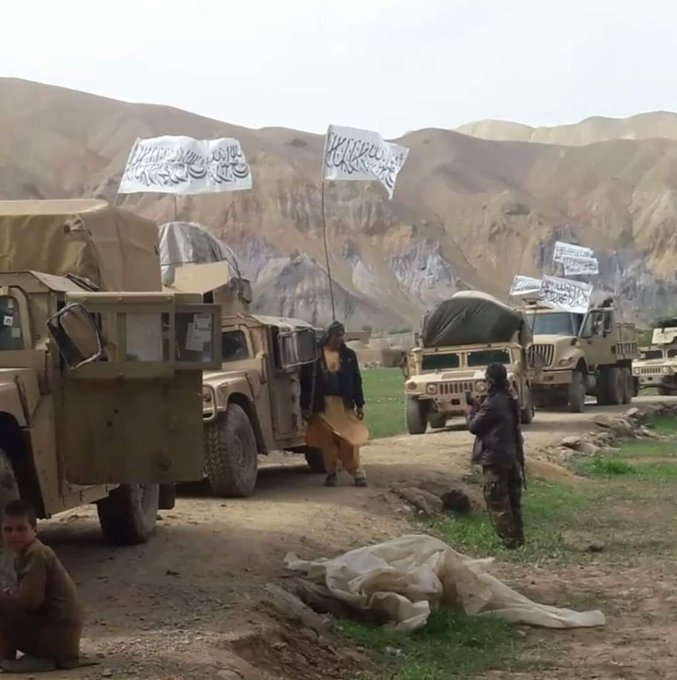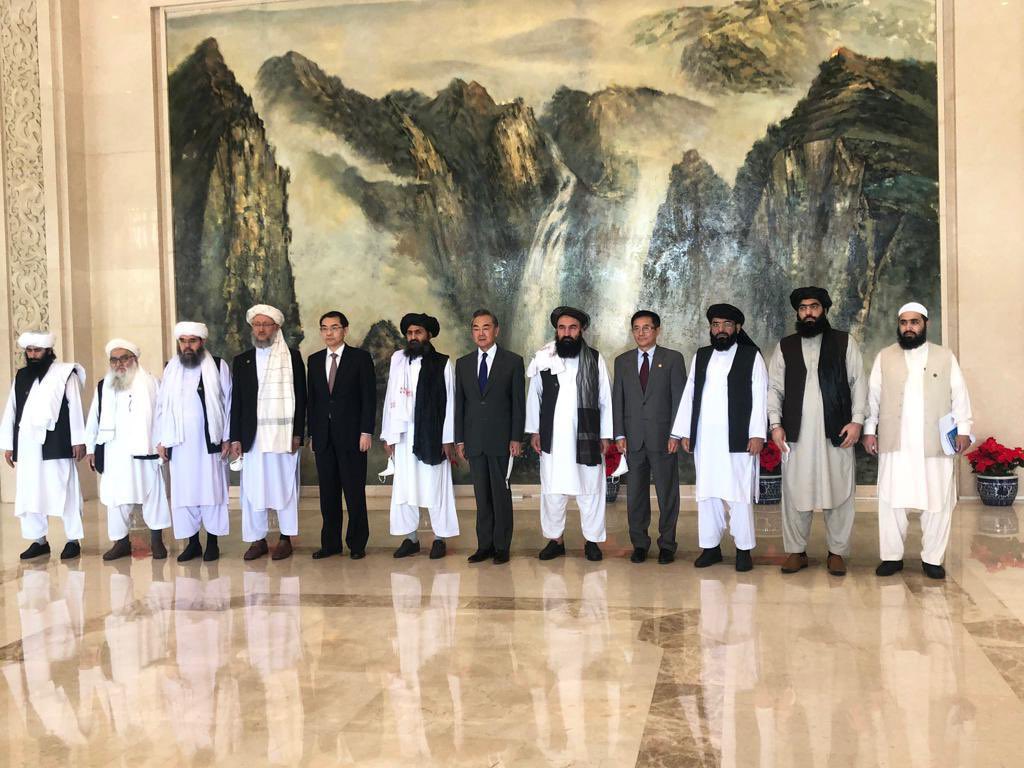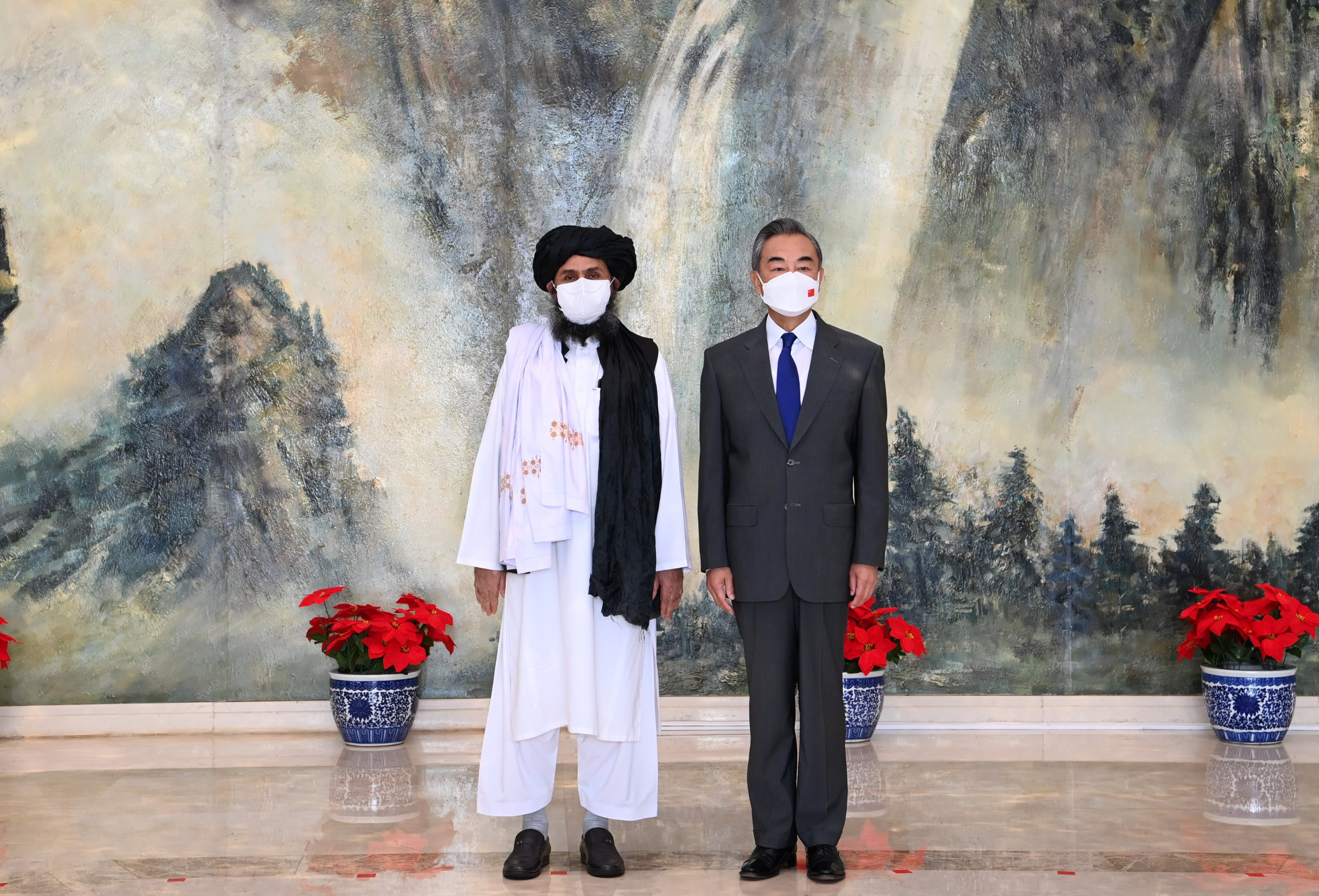The Taliban’s takeover of Afghanistan is gathering pace, with more and more provincial capitals of the country falling under its control in quick succession.
US Predicts Kabul Could Fall Within 1-3 Months To Afghan Taliban – Washington Post
And as the ascendancy of the Taliban in Afghanistan becomes more and more obvious each passing day, it becomes also increasingly clear that of all the major global powers players it is China that is going to gain the most geopolitically in this vital strategic region connecting to central Asia, Middle East and the Indian subcontinent (South Asia).
In fact, many analysts are now saying that geoeconomics, rather than geopolitics, is going to be the key to future stability (or lack of it) in Afghanistan.
The new great game in Afghanistan will be as much for fulfilling the strategic ambitions of major global players as for facilitating their respective corporates (whether state-owned or private) to be vital stakeholders in the Afghan economy, they say.
Past Tense, Future Imperfect
Analysts argue that over the last four decades, a hapless Afghanistan, plagued with civil war, has come under the influence of two superpowers – first the then-Soviet Union (USSR) and then the United States.

For the USSR, Afghanistan was important for its ideological proliferation as well as geopolitical influence in a country that bordered many of its then “socialist republics” (as parts of the USSR or Union of Soviet Socialist Republics).
But, Soviet involvement in Afghanistan became so costly that it became the principal catalyst in the disintegration of the USSR.
Afghanistan became important for the United States as a battleground first for the Cold War against the Soviet Union and then “War against Terror” that has a cost, as President Biden said the other day, more than a trillion US dollars and thousands of American soldiers.
Enter The Dragon
But this time, after the US withdrawal in September, many analysts see the possibility of China becoming the biggest outside player in Afghanistan. However, unlike in the calculations of the then Soviet Union and the US, economics may turn out to be the most significant factor behind the Chinese policy that is evolving towards Afghanistan.
Islamic terrorism is, of course, a factor for China, with extremist outfits, including the Al Qaeda, in Afghanistan having close collaborations with the East Turkistan Islamic Movement (ETIM) of the Uyghur separatists in its Xinjiang province.
But, more importantly, Beijing is also said to be eyeing the gainful exploitation of the rich mineral wealth that lies beneath Afghan soil, and that too in a country geographically crucial to the development of China’s Belt and Road Initiative.

There may not be many headlines on this aspect, but the fact remains that Afghanistan is one of the richest mining regions in the world. American geological survey had estimated way back in 2007 the untapped mineral wealth of Afghanistan to be in the range of nearly $1 trillion.
But subsequent studies say it is worth $3 trillion, “including $420 billion worth of iron ore, $274 billion worth of copper, concentrations of gold with an estimated value of $25 billion, $81 billion in niobium deposits, and $50 billion worth cobalt”.
Besides, the unexplored Afghan oil reserves are believed to stand at approximately 1,596 million barrels, and natural gas reserves, at 15,687 trillion cubic feet, respectively.
However, the most important mineral that Afghanistan possesses is an estimated 1.4 million tons of rare earth elements (REEs).
Mineral-Rich Afghanistan
REEs are strategically the most important mineral in the world today as they are essential to the manufacture of a host of modern technologies, including cellphones, televisions, hybrid engines, computer components, lasers, batteries, fiber optics, and superconductors.
They are critical to the national security products and key to the production of tank navigation systems, missile guidance systems, fighter jet engines, missile defense components, satellites, and military-grade communications gear.
It may be noted that at present China produces 97 percent of the REE in the world. And it is not hesitating to use it as a geopolitical weapon, making itself in the process an undependable source for the global industries. Beijing manipulates the global REE market by dramatically slowing, and in some cases halting, export of these materials.

For instance, China stopped supplying REEs to Japanese customers, following a maritime dispute. It even reduced overall global exports by 72 percent in the second half of 2010, cut export quotas for the first half of 2011 by 35 percent, and slashed REE mining permits by 41 percent in 2012, claiming its actions were a function of efforts to fight pollution!
Though of late leading manufacturers are looking at the alternative sources of REE mines that are being explored in Brazil, Canada, Vietnam, Mongolia, and the United States, China still can remain the primary country with REE resources if it taps the strategic mineral in Afghanistan.
The Chinese Economics
All this explains why China is eager to explore and develop Afghanistan’s mineral wealth. It is all the more so when China is an explosively growing industrial economy that borders Afghanistan. And unlike other major investor countries that are fighting hard to revive their Covid-19 pandemic–hit economies, China has huge resources to make crucial investments in Afghanistan.
As it is, China has already emerged as Afghanistan’s single-largest foreign investor. The China Metallurgical Group Corp., Jiangxi Copper Corporation, and Zijin Mining Group Company won a few years back a joint bid worth $3.5 billion for developing what has been touted to be the largest undeveloped copper field in the world – the Aynak copper field situated in the Logar province in central-east Afghanistan. It became the largest foreign direct investment in the history of Afghanistan.
Similarly, China National Petroleum Corporation has won contracts to drill three oil fields for 25 years.

However, it is to be noted that much work has not taken place in the bids that China has won years ago. So much so that the present regime in Kabul has threatened to cancel the tenders.
But then the reasons for the delay on China’s part have been explained to be a deliberate decision by Beijing to go slow, given the deteriorating security conditions and incidents of reports of corruption and bribery on the part of Afghan officials.
Beijing Woos Taliban
With the Taliban’s imminent control of legitimate power in the country becoming a foregone conclusion, the Chinese are systemically wooing them. On July 28, Chinese State Councilor and Foreign Minister Wang Yi held a high-profile official meeting with a delegation of nine Afghan Taliban representatives, including the group’s co-founder and deputy leader Mullah Abdul Ghani Baradar.
Though this was not the first visit by Taliban members to China, the meeting was unprecedented in its publicity, the seniority of the Chinese attendees, and the political messages conveyed. It is said that Wang used the meeting to publicly recognize the Taliban as a legitimate political force in Afghanistan, a step that has major significance for the country’s future development”
And the Taliban have openly welcomed Chinese investment in the reconstruction of Afghanistan and have indicated they would guarantee the safety of investors and workers from China.




